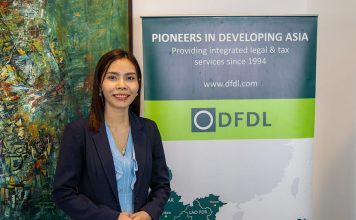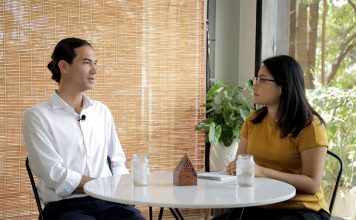The perception of Cambodia’s competitiveness on a regional scale has not markedly changed, as the country remains attractive mainly due to its low cost of human resources, according to the European Chamber of Commerce in Cambodia’s (EuroCham) Business Confidence Survey 2017 released yesterday.

“Around 43 percent of respondents feel that Cambodia’s competitive advantages are ‘average’, compared to 39 percent in 2015,” stated the EuroCham survey. “There has been no change, at 79 percent, among those who feel that the low cost of human resources is a main competitive advantage.” However, the survey pointed out that “retention of human resources becomes more of an issue as businesses are competing to attract a limited pool of skilled individuals in a context of a growing economy.”
EuroCham’s 2017 survey was conducted from March 27 to May 31 and reflects the perceptions of its members across more than 20 sectors, from consumer goods and retail to consultancy services, tourism, and media and communication. Around 115 responses were received from local companies with international ownership, half of which are small-and-medium enterprises. Overall, EuroCham stated that Cambodia’s business confidence index has fallen slightly from 50.4 percentage points to 48.8 points in 2017.
“This year’s edition of the EuroCham Business Confidence Survey addresses the state of the business confidence in a period of uncertainty, preceding both communal elections and the parliamentary election,” stated the survey. “While Cambodia’s economic growth remains stable, past experiences have shown that pre-election times have always proved challenging for the Kingdom’s economic activities. This year’s respondents’ expansion forecasts point to a general sense of caution as Cambodia approaches the 2018 national elections.”
The survey also stated that continuous reforms being implemented by the government appear to have short-term negative repercussions for certain businesses, particularly in the area of taxation – where the impact of unfair competition appears to be increasing.
Despite the shortcomings, the survey pointed out that a “solid majority of respondents remain optimistic regarding Cambodia’s economic prospects”. “From what I see on the ground, business is growing, construction is still coming up and we export more. People are still coming and tourism is growing quickly this year,” said Arnaud Darc, chairman of EuroCham.
Sok Chenda Sophea, secretary-general of the Council for the Development of Cambodia, welcomed EuroCham’s survey and said that it was an important survey for investors to consider, comparing it with a recent survey done by the Japan External Trade Organisation (JETRO) on Japanese businesses in Cambodia. “The JETRO survey indicated that 95 percent of Japanese companies who are its members want to invest in Cambodia, citing low labour cost,” he said.
Chenda Sophea said that EuroCham’s survey was done by its members, mostly from the service industry based in a domestic market. On the other hand, he added, the JETRO survey was carried out with Japanese companies in Cambodia producing goods for export. “The methodology adopted by EuroCham is alright, but please don’t be too simplistic. Don’t take the findings of the survey, which is one part of the issue, and generalise it as the overall business climate of Cambodia,” he added.
This article was originally published in the Khmer Times.
[democracy id=”75″]









